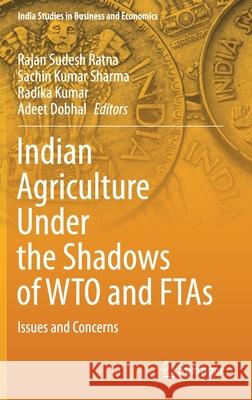Indian Agriculture Under the Shadows of Wto and Ftas: Issues and Concerns » książka
topmenu
Indian Agriculture Under the Shadows of Wto and Ftas: Issues and Concerns
ISBN-13: 9789813368538 / Angielski / Twarda / 2021 / 233 str.
Indian Agriculture Under the Shadows of Wto and Ftas: Issues and Concerns
ISBN-13: 9789813368538 / Angielski / Twarda / 2021 / 233 str.
cena 282,42
(netto: 268,97 VAT: 5%)
Najniższa cena z 30 dni: 269,85
(netto: 268,97 VAT: 5%)
Najniższa cena z 30 dni: 269,85
Termin realizacji zamówienia:
ok. 22 dni roboczych.
ok. 22 dni roboczych.
Darmowa dostawa!
Kategorie:
Kategorie BISAC:
Wydawca:
Springer
Seria wydawnicza:
Język:
Angielski
ISBN-13:
9789813368538
Rok wydania:
2021
Wydanie:
2021
Numer serii:
000459580
Ilość stron:
233
Waga:
0.53 kg
Wymiary:
23.39 x 15.6 x 1.6
Oprawa:
Twarda
Wolumenów:
01
Dodatkowe informacje:
Wydanie ilustrowane











